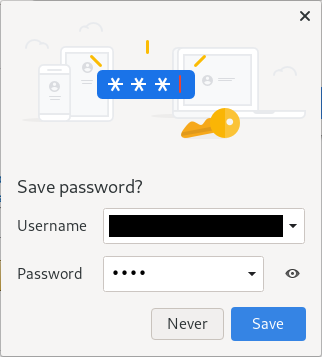In the latest weeks I’ve been identifying and fixing several issues related to accessibility on dialogs (called “bubbles” in the code base), specially but not limited to the Linux platform.
It all started with the “Restore pages” dialog that appears when restarting after a browser crash. ATs, like screen readers, were not being notified about the presence of that dialog due to it using an incorrect role, which made it impossible for a blind user to find it out unless by chance, tabbing through the application.
While I was working on that, I detected more issues related to this and other dialogs, so I started reporting and fixing individually. They also led me to an existing meta-bug related to the “restore pages” dialog and accessibility… In the end, this is what I accomplished:
For the original issue with ATs not being able to report the “restore pages” dialog, a quick solution was to make this subwindow use the appropriate ATK role, “alert”, and implement some code in Orca, the screen reader, to detect an alert on a newly created browser window.
Now that users are notified of the presence of that dialog, it would be great to provide them with a way to focus it directly. Two related hotkeys are available in Chromium: F6 to rotate the pane focus, which should focus dialogs first if they are present, and Alt+Shift+A to specifically focus a dialog; but they did not work with that dialog. I fixed this problem, making the hotkey handler code look for dialogs anchored to the menu icon, where the “restore pages” dialog is located. This problem was affecting all platforms, so it’s been a big gain!
Testing the existing hotkey code led me to trying out other kinds of dialogs, and I noticed that permission dialogs (like “a website wants to know your location”) had similar problems: they were not notified and not affected by hotkeys. I fixed both things by making sure that the dialogs have the proper role, that the alert events are properly managed by the Linux accessibility backend, and checking the browser omnibar for anchored dialogs when the focus hotkeys are used.
I detected similar problems in the “store password” bubble; the Orca screen reader was unable to announce that, because it didn’t have the expected role nor it did emit the proper events. Changing the role of the bubble was enough to activate the code that triggered the events, fixing both problems at the same time.
Finally, working with dialogs and alerts made us reconsider their role mappings for ATK, which we decided to modify to better match Chromium and ARIA roles.
There are more enhancements in the backlog, for example, we will try to minimize the number of redundant alert events or come up with a more general solution to decide the role of the dialog, which is also causing similar problems to Windows accessibility (e.g. on the “restore pages” dialog).
Thanks a lot to everyone who helped land these patches, specially Googlers who provided their feedback on reviews!


